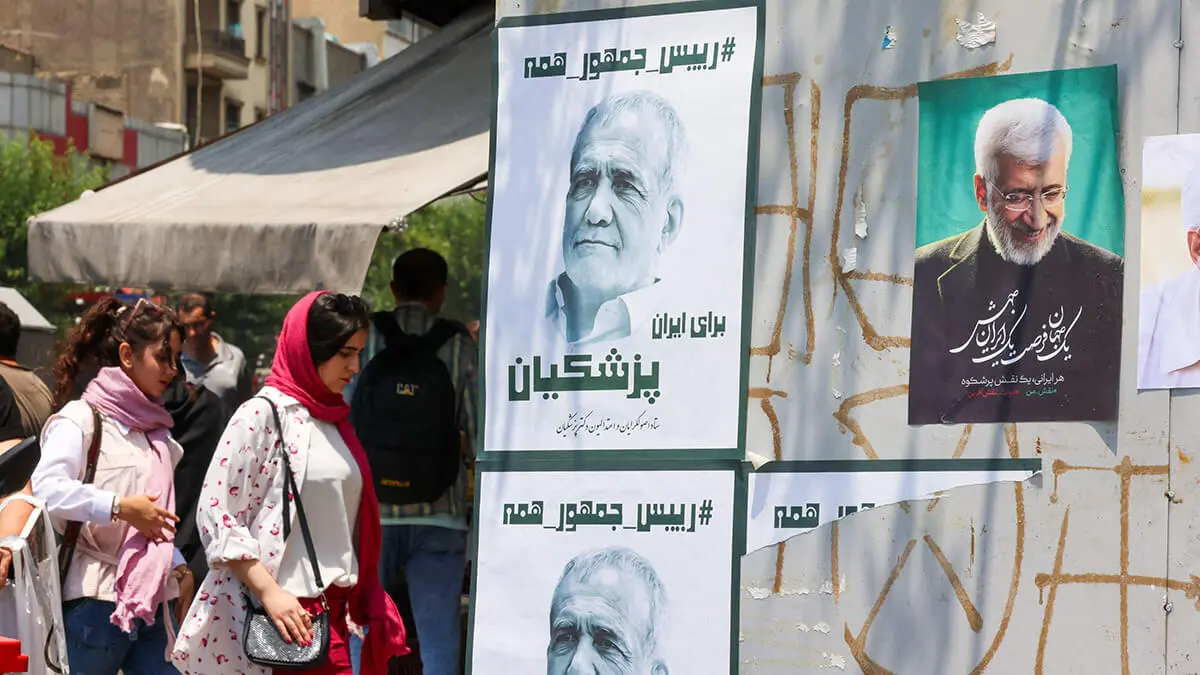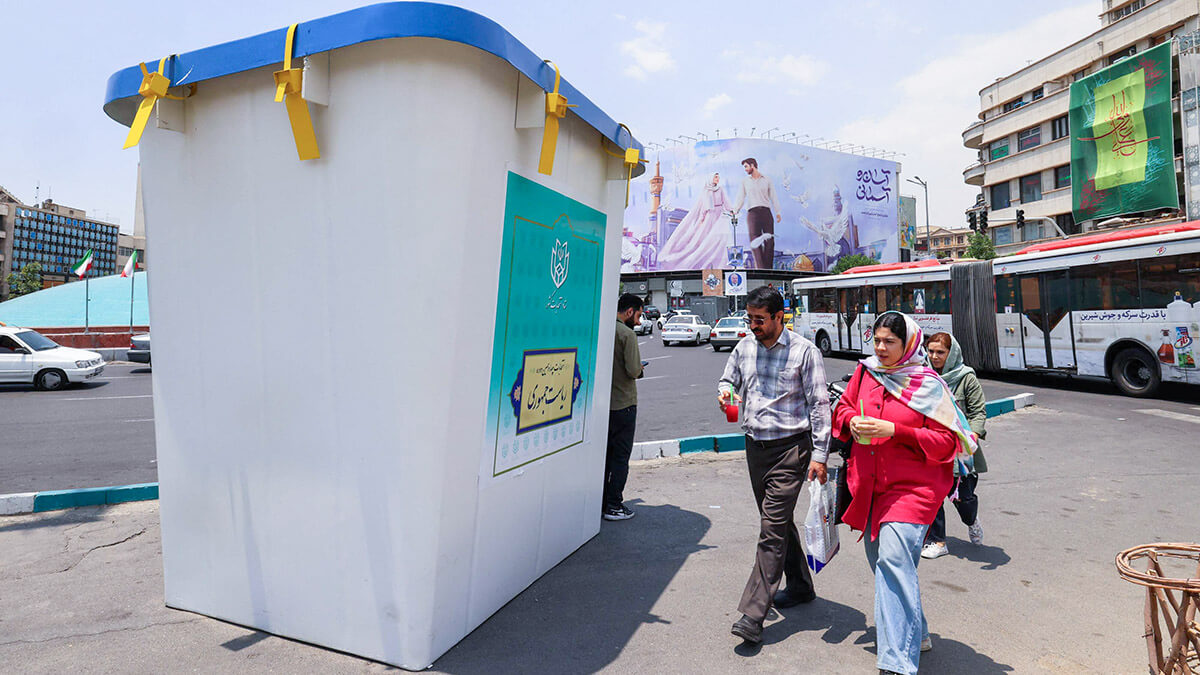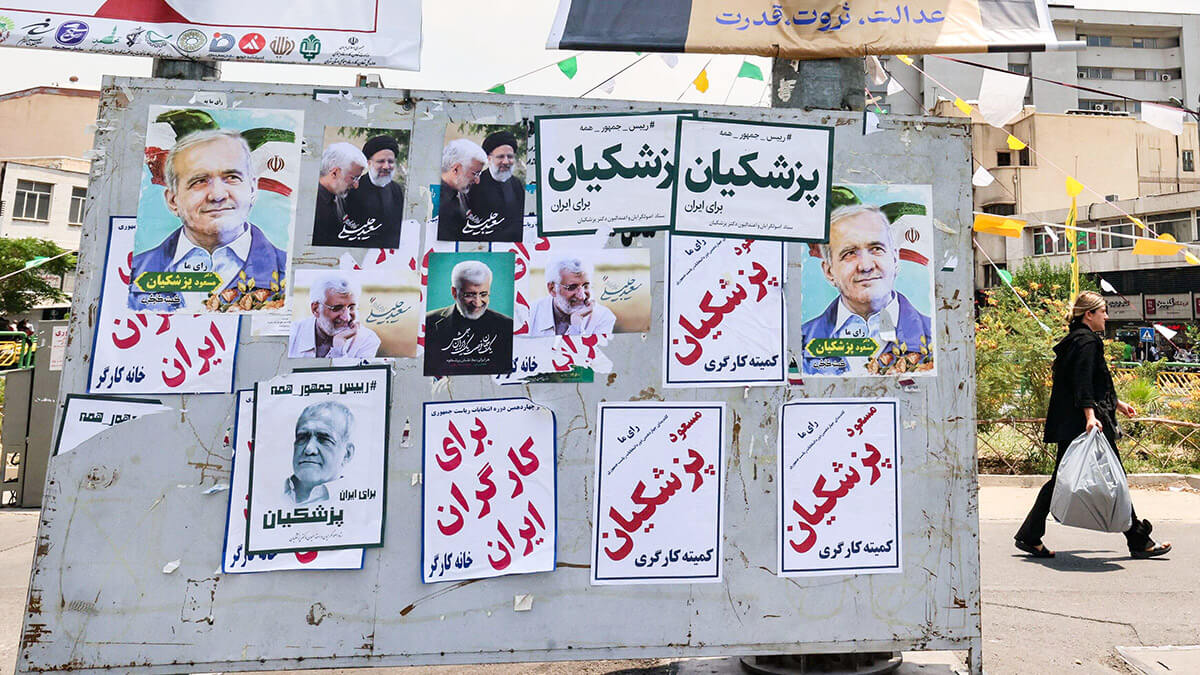Vote or abstain, the Iranians' dilemma in the presidential elections

Taghi Dodangeh is among those who have no doubts. "Voting is my religious and civic duty. I will do it until the last day of my life," says the 57-year-old baker on the outskirts of the Grand Bazaar, the commercial heart of the centre of the Iranian capital.
A fervent supporter of the Islamic Republic, he is determined to cast his vote for the new president, following the death of Ebrahim Raisi in a helicopter crash on 19 May.
Fariba, on the other hand, holds firm to opposing convictions. "I never voted and I won't vote," says the 30-year-old, who runs an online shop, without hesitation. "Whoever the president is, it won't change anything in our lives," she adds, without giving her surname.
Turnout is one of the key figures for the elections, which are being contested by six candidates - five conservatives and one reformist - approved by the Guardian Council, the body that oversees the elections.

In the previous presidential election in 2021, there was a record abstention rate since the 1979 Islamic Revolution, at 51%. In those elections, there were no reformist or moderate candidates on the ballot.
In Iran, the president is the second most important figure in the state after the supreme leader, currently Ayatollah Ali Khamenei, 85, who has been in office for 35 years.
At the beginning of the campaign, Khamenei called on Iranians to participate "in large numbers" in the election, saying it was "an important issue" for the country.
Mahdi Zeinali does not yet know whether he will vote. "If I think one of the candidates is a good person, I will vote. If not, I won't," says the 26-year-old saleswoman, who hopes that the candidates, all of whom are over 50, will take into account the demands of young people.
Women and the veil
"Young people are the most affected by the economic difficulties," even if "President Raisi made many efforts" to improve their situation, says Keshvar, a 53-year-old mother who wears a chador, a veil that covers her head and part of her face.
For Jowzi, a 61-year-old woman, it is unfortunate that "there is almost no difference between the six" candidates. "It cannot be said that they come from different groups".

In her opinion, "it matters little whether the next president wears a turban or not". In fact, five of the eight presidents since 1979 have been religious figures.
Among the six candidates, the favourites are Said Jalili, the ultra-conservative former negotiator of the nuclear programme, Mohamad Bagher Ghalibaf, the speaker of parliament, and reformist MP Masud Pezeshkian, according to a poll by the Ispa institute published on Thursday.
In addition to economic and social issues, geopolitical tensions between Iran and the West and the issue of compulsory veiling for women are among voters' main concerns.
"Before the elections", women who do not wear the hijab in public places are "less watched" by law enforcement. But "when the voting is over", the situation becomes tense again, says Fariba.
For Jowzi, who wears the veil, like her daughters, it is "a personal matter" in which the state "should not interfere".
When asked about it, most of the candidates opted for a cautious position, declaring themselves opposed to the morality police and the use of violence against women who do not wear the veil.








